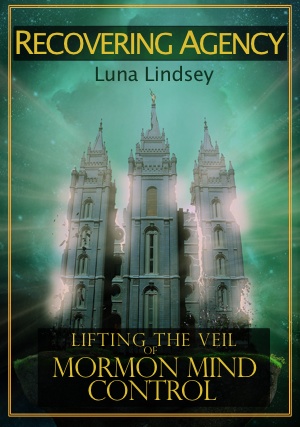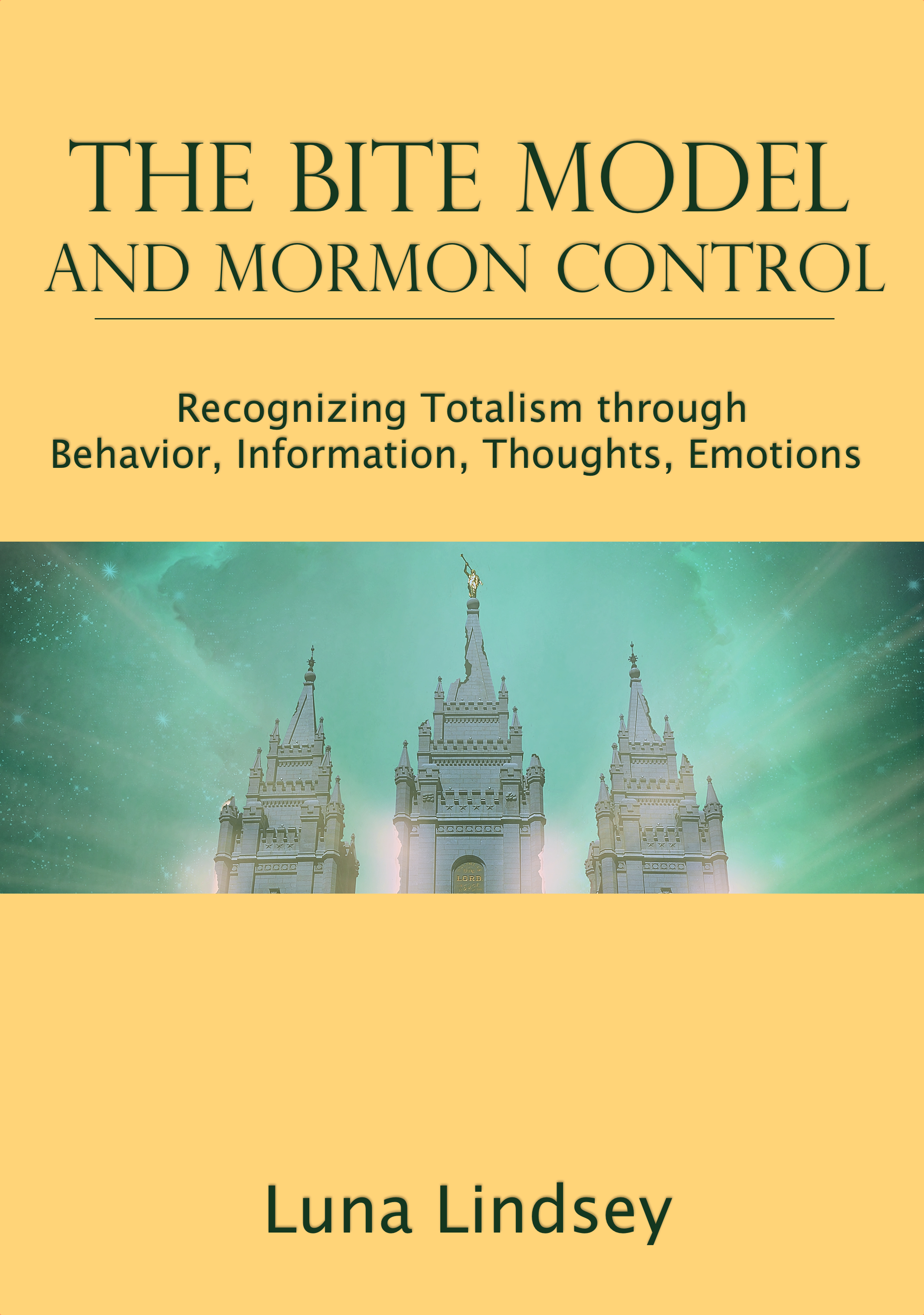High-demand groups instill black and white thinking.
Everyone is good or evil, ideas are either from God or Satan, there’s the Church of the Lamb of God, and the Great and Abominable Church. Choices are either right or wrong.
You can either serve God or mammon. Mormon or gentile. Righteous or wicked. Humble or proud. Weak or strong. Blessed or cursed. Clean or unclean. All or nothing. The water should be hot or cold, and if it is lukewarm “I shall spew thee out of my mouth” (Revelations 3:16). With us or against us. Loving or hateful. Perfect or flawed. Obedient or rebellious. Eternal life or death. Spiritual or material. Sacrifice or selfishness. Godly or sensual. Drawing close to God or away from him.
Black and white thinking serves a few purposes. It contributes to the feeling of being right, one of the “good guys”. (See also Elitism.) It further isolates the member from those on the outside and those who think differently. It closes the mind to influence from outside information, so that details can be instantly labeled and filed under “good” or “bad”, rather than processed and fully understood.
It makes direction from the leaders very simple. They don’t need to explain or logically present their case. They merely need to tell the followers, “This is bad because we said so”, or because God said so, and the followers, who are already in the habit of thinking this way, will accept the leader at his word.
This has some benefits for members as well. Most of the perceived risk is taken out of decision-making. In this mindset, often it seems very clear what is right and wrong. You don’t need to hear both sides of any story. There are good guys, and bad guys, and since you side with the good guys, there is no need for further study.
This opinion is then often applied to others. Cult members frequently sound very judgmental, especially of those who don’t share their views. This even further isolates the members from receiving information that could change their mind.
Harsh self-judgment can come into play, and this is often what is projected onto outsiders.
In reality, there are usually three or four sides to every story. Problems have dozens of answers. Some things are kind of right, or neither right nor wrong. Most of life’s situations are very complicated, and there are few easy answers.
Creativity requires the ability to think of all possibilities. Those who limit their choices and their world-view also limit their ability to learn and to come up with original solutions. Imagine painting with a watercolor set that only has two colors.
Here is what the Church has to say about it.
“There is no middle road. Our position must be one of strength in order to overcome the evil that Satan would have us do.” Using Our Free Agency, Apostle Elder Delbert L. Stapley, Ensign, May 1975
This talk is supposedly about free agency, but instead it seems to be about good versus evil. In one breath, Delbert proclaims freedom for all, yet in the other, he limits our choices to either A or B. A is following the gospel in every way, and B is succumbing to Satan’s evil.
This talk is typical of Mormon doctrine. It would be like Pepsi declaring that cola is the only beverage available, and Coke uses strychnine as a primary ingredient. Is Pepsi promoting freedom in this example?
Here is another quote from Church sources: “Someone once said, ‘If you come to a fork in the road, take it.’ But it doesn’t work that way.” Serving the Lord and Resisting the Devil, James E. Faust, September 1995
But it does often work that way. A fork in the road has no moral consequences. It’s just a fork, and if you’re only sightseeing, does it matter? Most of life’s choices have no moral implications, yet the Church often gives the impression that every little daily choice will have eternal consequences.
“The consequences of [mortal man’s] choices are of the all-or-nothing sort. There is no way for him to escape the influence of these opposing powers. Inevitably he is led by one or the other.” The Price of Peace, Marion G. Romney, BYU Devotional, 1955
Read more about Black and White Thinking in my book, Recovering Agency: Lifting the Veil of Mormon Mind Control.



